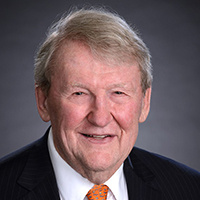 Braintree Criminal Lawyers, Massachusetts
Braintree Criminal Lawyers, Massachusetts
Sponsored Law Firm
-
 x
x

Click For More Info:
-
Adam P. Beck, M.D., Esq.
25 Marston St Suite 303 Lawrence, MA 01841» view mapAccident & Injury Law Legal Expertise You Can Rely On
By working with lawyers who are also doctors, clients can benefit from advocates who have a deeper understanding of their physical injuries, medical needs, and prognoses.
800-383-8491
Sponsored Lawyers
1-10 of 16 matches
Accident & Injury, Criminal, Employment, Business, Divorce & Family Law
Mr. Murphy’s legal career emphasizes management labor, corporate, and litigation matters. Selected in the publication of Best Lawyers in America, Mr. Murphy represents many large and small businesses, including Fortune 500 corporations, and serves as counsel to a variety of trade associations as well as major governmental agencies in all areas of labor and employment law. Mr. Murphy has presented and argued hundreds of cases including labor and employment matters in proceedings at the administrative, state, and federal levels. He has successfully argued labor and employment cases at both the state and federal levels, including the Supreme Judicial Court of Massachusetts. Mr. Murphy is a former member of the Governor’s Task Force on Labor-Management Relations and past President of the Boston Chapter of the Industrial Relations Research Association and advisory counsel to the American Arbitration Association. In addition, Mr. Murphy is a member of the Labor Relations Advisory Committee, a select panel of the nation’s leading labor relations attorneys and he has served on a national team of seven lawyers that advises an association of 1,200 hospitals across North America. Mr. Murphy is a former Chairman of the South Shore Chamber of Commerce, former Advisory Director of the Bank of Boston, and a Director of Quincy Mutual Insurance Company and other profit and non-profit corporations and trade associations. In December 1989, Mr. Murphy was honored as a recipient of the Cushing-Gavin Award for management representation in the field of labor relations. In 1996, Mr. Murphy was elected as a Fellow of the College of Labor and Employment Law. Mr. Murphy was one of only fifty practicing attorneys in the nation honored with the Fellowship appointment and was the only attorney in Massachusetts to receive the Fellowship. Mr. Murphy is a graduate of the University of Notre Dame and Suffolk University Law School. He is admitted to the Bars of the Commonwealth of Massachusetts, the District of Columbia, the United States District Court for the District of Massachusetts, the United States Court of Appeals for the First Circuit, and the Supreme Court of the United States.
(more)Divorce & Family Law, Estate, Criminal
Christopher E. Sawin is Founder and Principle Attorney of Sawin Law, P.C., where he concentrates his practice in family law, probate, estate planning, and veterans’ law. His practice includes the representation of individuals in some of the most difficult of life’s transitions, including divorce, paternity actions, modification of agreement and judgements, custody disputes, prenuptial agreements, enforcement proceedings, restraining orders, estate disputes, discharge upgrades, and military disability appeals. To serve clients with the upmost quality representation, Mr. Sawin draws upon his experience, training, and education to reach the best possible result for every client. His analytical approach and hard-earned reputation for integrity and discretion ensures quality results, keeping the client’s best interest at the forefront of his practice. Mr. Sawin believes that zealous advocacy combines an understanding of the law with a creative use of intellect, negotiation, reasoned decision-making, and effective implementation of experts. Previously, Mr. Sawin was a law clerk to Chief Justice John D. Casey of the Massachusetts Probate and Family Court and also represented indigent families through his participation of the Suffolk Family Advocacy Clinic in a variety of issues in the Greater Boston area. Prior to attending law school, Mr. Sawin served in the United States Marine Corps where he deployed to Iraq during Operation Iraqi Freedom and aboard the USS Iwo Jima with the 26th Marine Expeditionary Unit. He currently volunteers a portion of his legal services to indigent military veterans and their families with the unique legal challenges they face before the U.S. Department of Veterans Affairs and with state law issues.
(more)Criminal, DUI-DWI
Attorney Milligan is a Massachusetts drunk driving defense lawyer dedicated to aggressively representing and defending people charged with drunk driving in Massachusetts (OUI, DWI, DUI). He is one of the only two(2) lawyers in Massachusetts that is board certified in drunk driving defense. Attorney Milligan has also been identified as a “Super Lawyer” by Super Lawyers Magazine in Massachusetts. He is the chair of the Massachusetts continuing legal education courses on handling OUI cases and has lectured other Massachusetts lawyers how to best defend clients charged with drunk driving (OUI, DWI, DUI). Attorney Milligan is a seasoned and experienced drunk driving lawyer who handles more drunk driving cases a year in Massachusetts than most attorneys do in their career. You need a lawyer dedicated to Massachusetts drunk driving defense, who knows the law, and aggressively fights to obtain the best outcome possible.
(more)


 Adam Beck Lawrence, MA
Adam Beck Lawrence, MA AboutAdam P. Beck, M.D., Esq.
AboutAdam P. Beck, M.D., Esq. Practice AreasExpertise
Practice AreasExpertise



